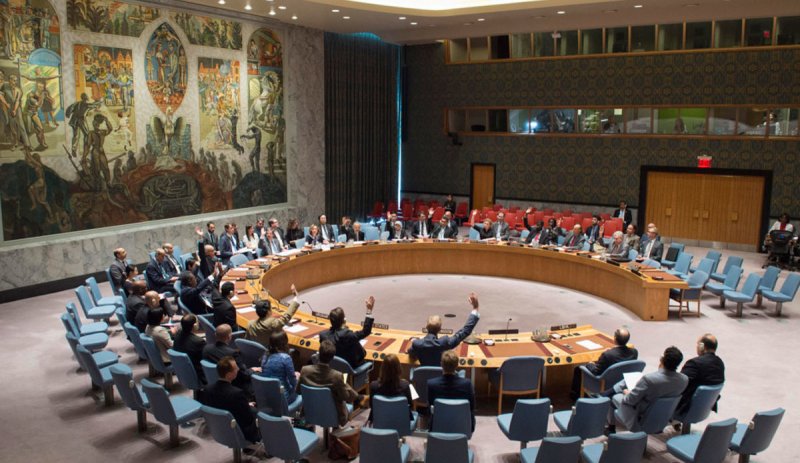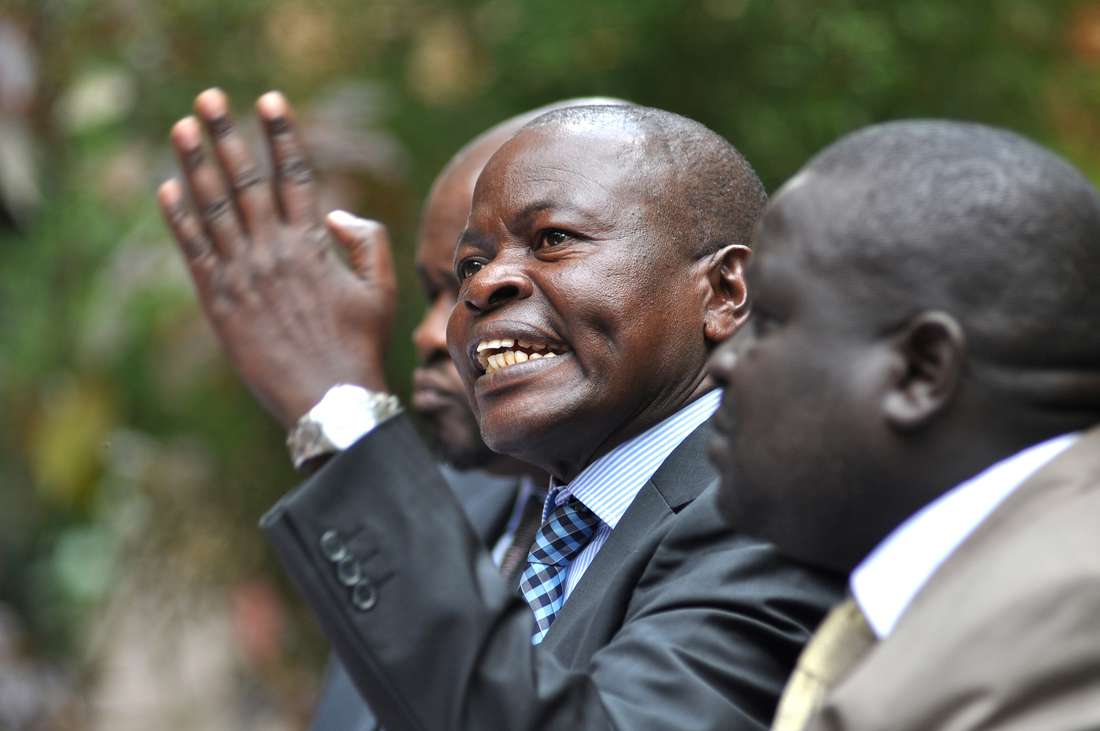UN Security Council extends Libya mission, UNSMIL, until October 2026

The mandate of the political mission that was established in September 2011 to support Libya's transition after the fall of Muammar Gaddafi will continue until October 31, 2026.
The United Nations Security Council (UNSC) has unanimously adopted draft resolution 2796, extending the mandate of its political mission in Libya, known as UNSMIL, for another year.
As a result, the mission, established in September 2011 to support Libya’s transition following the fall of Muammar Gaddafi, will continue until October 31, 2026.
More To Read
- UN Security Council begins process to appoint next secretary-general
- Uganda’s ex-deputy Chief Justice Richard Butera elected to UN Appeals Tribunal
- UN Security Council approves US-brokered Gaza peace plan
- More than 1,000 migrants drown in Mediterranean so far this year, IOM says
- Libya rescues 49 Sudanese migrants off western coast
- Guterres calls for urgent reform of the Security Council
UK Deputy Permanent Representative to the UN, Ambassador James Kariuki, welcomed the resolution’s adoption, stating: "This mandate plays an important role in supporting the Libyan people to achieve the peace, stability, and democratic governance they deserve."
In a strategic review conducted ahead of the vote, UN Secretary-General António Guterres’ team concluded that UNSMIL remains a vital stabilising presence. However, its ability to fulfil its core mandate has been hampered by national fragmentation, internal limitations, and shifting geopolitical dynamics.
14 years after the 2011 revolution, Libya remains trapped in a fragile transition marked by recurring violence, divided institutions, and the growing influence of powerful armed groups. Many of its governing and legislative bodies continue to operate beyond their mandated terms.
The review highlighted several factors contributing to the political stalemate, including the absence of a unified constitution, the failure to hold national elections in December 2021, and conflicting interpretations of transitional agreements and legal frameworks.
"In the West, in the absence of strong institutions, hybrid armed groups often act as de facto providers of security. Competition among these groups over territory, resources, control of illicit activities, and institutional influence has fuelled recurring violence that often affects the civilian population. In May 2025, the killing of a major armed group leader triggered some of the deadliest clashes in Tripoli since 2011," the document notes.
Despite these challenges, Libya saw peaceful local elections in 56 municipalities in 2024, followed by elections in 34 more municipalities in August 2025—mostly in the west. However, elections were not held in 29 municipalities, primarily in the east and south.
"The newly and recently elected municipal councils currently represent the only democratically legitimate bodies in Libya, but they have limited influence over national governance," the review found.
It noted that a key obstacle to breaking the stalemate lies in the legal framework for elections, which contains contentious provisions, including with respect to the eligibility criteria for presidential candidates and the sequencing and linking of parliamentary and presidential elections.
"While these issues are technically solvable, they remain politically divisive because of fears of a winner-takes-all outcome. Without an overarching constitution that addresses fundamental questions of governance, the division of powers, and the sharing of resources, a zero-sum mindset has taken root in which actors view any gain made by an adversary as their loss. In the context of this logic, the threat and use of force remain common political tools, while dialogue and compromise are largely dismissed," it said.
Since its last strategic review in 2021, UNSMIL has maintained an active presence across political, security, human rights, and institutional tracks. While its efforts have helped prevent large-scale violence and contributed to stability, they have not yielded decisive progress toward a political resolution.
"Following the failure to hold the presidential and parliamentary elections that were scheduled for December 2021, UNSMIL sought to address the underlying reasons for the postponement of the elections and revive the political process, amid a deepening stalemate. In 2023, the prospect of a renewed UNSMIL political initiative led by the Special Representative prompted the House of Representatives to adopt a constitutional amendment as the basis for holding elections," the document explains.
UNSMIL has continued close collaboration with UN agencies, funds, and programmes, and remains central to monitoring and reporting on human rights violations. In January 2025, the mission established an advisory committee of 20 Libyan experts, including seven women, to develop recommendations for overcoming electoral challenges and advancing the political process.
However, the mission faces persistent challenges, including limited resources and staffing. Its efforts to support national reconciliation have also been hindered by weak coordination with the African Union, which plays a key role in that area.
The continued presence of foreign forces, mercenaries, and illicit arms flows, violating Security Council resolutions, further undermines ceasefire implementation and state consolidation.
"While formally unified in their support for the Mission's mandate, many international actors have pursued diverging policies in practice, often reinforcing the country's internal divisions," said the report.
It recommended actions for increasing the effectiveness and efficiency of the overall structure of UNSMIL through prioritisation of tasks and resources, to facilitate a sustainable political process and ensure an effective mission presence across Libya within existing resources.
"The current mandate is vast, yet UNSMIL is not structured or resourced in a way to implement all its tasks. Without greater focus and coherence, there is a real risk that the Mission will remain tactical and reactive," the report urged.
Top Stories Today















































